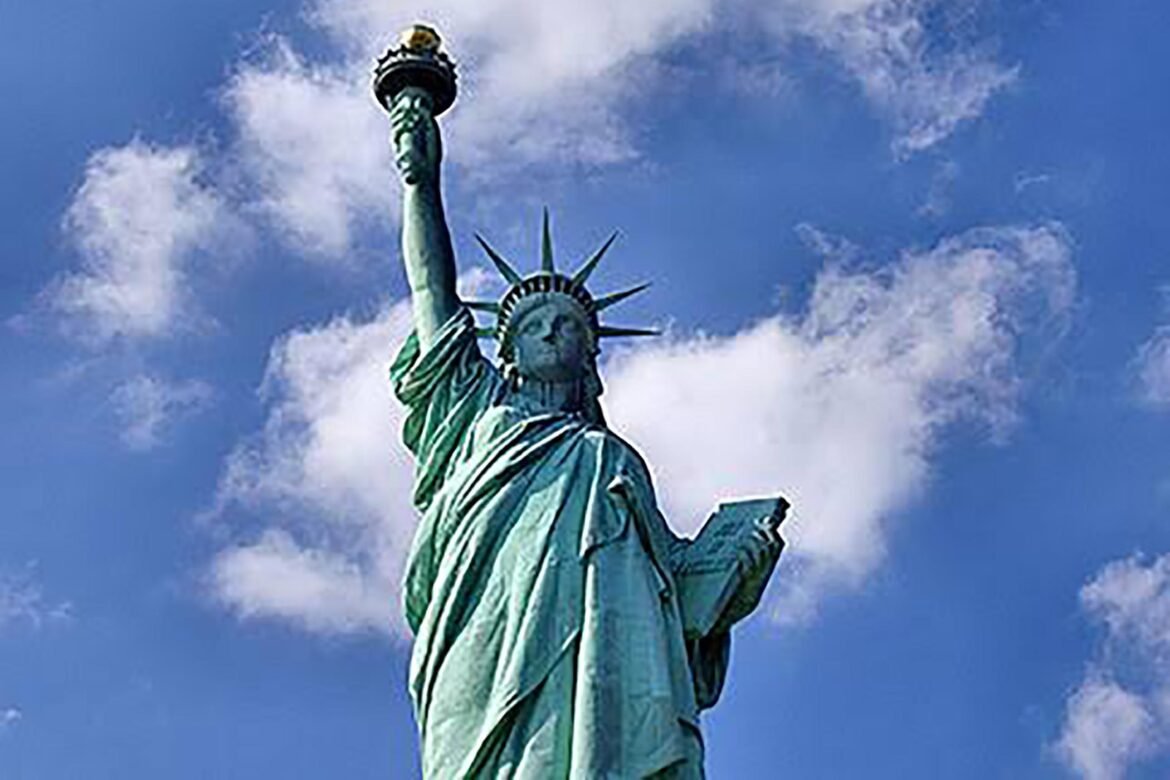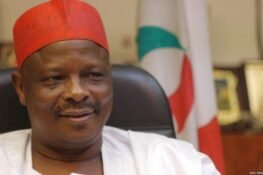A visit by any United States president, to any country opens doors and comes with immeasurable benefits.
In some ways, it is better than hosting the world cup.
Only 14 countries in Sub-Saharan Africa have ever been visited by a United States president.
Surprising, George Bush, a Republican president visited Africa more than any other president, setting foot on at least countries while he was president.
Democratic Party presidents, Bill Clinton and Barack Obama each visited eight African countries during their presidency.
Of all three, only Obama did not visit Nigeria.
Jimmy Carter was in Nigeria in April 1978, Clinton in August 2000 and Bush in July 2003.
In Sub-Saharan Africa, only South Africa and Senegal have gotten more US presidential visits.
Clinton saw to the passage of the African Growth and Opportunity Act (AGOA) in May 2000, in 2004, Bush extended it to 2015 and in June 2015 Obama extended it to 2025
But under all three presidents, and between 1993 and 2015, more development opportunities and more money have been poured into Africa than at any other period.
Clinton saw to the passage of the African Growth and Opportunity Act (AGOA) in May 2000, in 2004, Bush extended it to 2015 and in June 2015 Obama extended it to 2025.
Until his very last year in office, there was a massive lobby to have Obama visit Nigeria.
And it wasn’t just Nigerians calling for a visit.
John Campbell, a former US Ambassador to Nigeria and Johnnie Carson who US Assistant Secretary of State for African Affairs supported such a visit.
It never took place.
Obama had consistently snubbed Nigeria during the presidency of Goodluck Jonathan and it had become a touchy subject for the PDP government.
And in the early days of the Donald Trump administration, a few government officials were hopeful the American president might make the visit a reality.
But after three and a half years of the Trump presidency, the thought of the US president setting foot on the African continent seems like a pipe dream.
In fact, Africa has completely has fallen off the US foreign policy radar.
Just over four years ago, Joe Biden still had hopes of running for president of the United States of America in the November 2016 election.
One man stood in his way.
President Barack Obama who believed his former Secretary of State, Hillary Clinton was a better candidate than his Vice President.
Refusing to endorse a presidential run by Biden, the US president effectively ended the campaign before it even began.
Even if a new president is elected in November, some of the immigration policies adopted by the present government could take a whole decade to undo
As it turned out, Trump defeated Clinton in the November 2016 presidential election. But her defeat wasn’t just about how voters felt about the two candidates, it was about how the governments of other countries felt about them and the extent the countries were willing to go interfering in US election.
Just as much, the defeat of Clinton was about how the two major political parties managed their party primaries.
The Democratic Party had an insurgent candidate it didn’t like in Bernie Sanders and it did everything it could to scheme him out of the process.
That eventually led to the resignation of party chairperson, Debbie Wasserman Schultz and the defeat of Clinton.
The Republican Party also had an insurgent candidate it didn’t want winning the primaries and was consistently threatening to run as an independent candidate in Donald Trump.
He never had to carry the threat. Their reward was victory at the polls.
He is up for reelection and the whole world appears to have a stake in the November 3, 2020 presidential election.
It is 99 days away, which in politics is light years away.
For everyone, the election will determine whether an attempt to go back to a world of international cooperation, will be possible or whether there will a new world order without American leadership.
In Europe, it is about their security in the face of an increasingly aggressive Russia; which is also growing more confident in trying to shape the outcome of leadership contests across the continent, the future of the European Union and that of the North Atlantic Treaty Organization.
Donald actively supported Great Britain leaving the European Union and does not hide his dislike for the EU and China, and the elections are not just about its trade relationship with the US.
It is just as much about China’s security and interest across the globe.
The rivalry is already producing casualties in the World Trade Organisation (WTO) and the World Health Organisation (WHO).
The new cold war, it appears is between China and the US.
In the end though, it doesn’t really matter what the world thinks of Trump because it won’t get to vote at the election
Back in 2016, opinion polls conducted by Worldwide International Network and Gallup International showed citizens in virtually every country had a preference for Hillary Clinton over the eventual winner, Donald J. Trump.
Of 44 countries where opinion polls were taken, all but one favoured the candidacy of Clinton.
The only exception was Russia where 33 percent had a preference for Trump against the 10 per cent who supported Clinton.
The numbers were close in China. Clinton had 53 per cent to Trump’s 44 per cent.
In Canada, to closest country to the US both geographically and how they view the world, 69 per cent supported Clinton while only 12 per cent wanted Trump.
Mexicans favoured Clinton 78 per cent to five per cent for Trump.
Germany, the most important country in Europe, polls gave Clinton 77 per cent and Trump just eight per cent.
The story was no different in Africa, Nigerians’ support for Clinton was 77 per cent against a 19 per cent support for Trump.
South Africa’s on the other hand gave Clinton 59 per cent support to 15 percent for Trump.
In every country, there was a fear a Trump presidency would disrupt the world order, upend international treaties and fuel global conflict.
President Trump has launched a trade war with China, withdrawn from trade agreements with Canada and Mexico, imposed tariffs on the European Union and has continued to question US commitment to NATO.
He has several African countries on a blacklist of those no longer welcome in the United States, effectively shutting the door on tens of thousands of people seeking opportunities across the Atlantic.
And even if a new president is elected in November, some of the immigration policies adopted by the present government could take a whole decade to undo.
The world already knows what to expect if Trump is reelected.
In the end though, it doesn’t really matter what the world thinks of Trump because it won’t get to vote at the election.
And the only country willing to go as far as interfering in the election by manipulating public opinion is on Team Trump.








